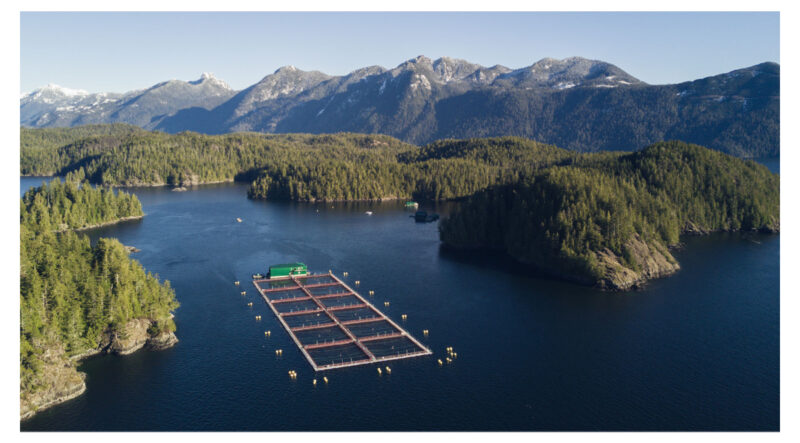First Nation renews aquaculture agreement with salmon farmer
“We are at a point of unprecedented challenges brought on by climate change, and a lack of understanding, particularly in the Federal government of our Nation’s rights and this important relationship,” – Ahousaht First Nation
By Fabian Dawson
SeaWestNews
Ahousaht, one of BC’s largest First Nations, has renewed a five-year agreement with Cermaq Canada, which provides the salmon farmer a road map on how it will conduct its marine aquaculture operations in the indigenous community’s traditional territory.
New to this latest protocol agreement, is a further focus on reconciliation and wild salmon, area-based management, innovation, and broader environmental monitoring in recognition of changing ocean conditions, climate change and potential salmon farming impacts and opportunities.
Cermaq Canada operates in Ahousaht Territory under the Ahousaht Protocol Agreement and through the governance process of the Ahousaht Ha’wiih (Hereditary Chiefs) as represented by Maaqtusiis Hahoulthee Stewardship Society (MHSS).
Cermaq Canada farms Atlantic salmon in 25 sea sites on the west and east coasts of Vancouver Island with four hatcheries across northern Vancouver Island.
This renewed deal is one of 17 arrangements BC salmon farmers have with First Nations in the province, with the longest going back over two decades. These 17 Nations make up much of the south coast of British Columbia, with supply lines in the Fraser Valley, processing plants on the Lower Mainland, and transport contracts across BC.
According to the Coalition of First Nations for Finfish Stewardship from British Columbia the direct economic benefits to indigenous coastal communities in the province exceed $50 million annually through more than 276 full time jobs, benefit payments, and contracts with indigenous-owned companies.
In total, when indirect and induced economic activity is factored in, First Nation interests in BC’s farmed salmon sector on and off reserves are estimated to generate $83.3 million in economic activity, $47.8 million in GDP, and 707 jobs earning $36.6 million in wages per year.
The renewed agreement with the Ahousaht comes as the Federal Government is set to make a decision on 79 salmon farming licences which are set to expire June 30. The licences have been in limbo after the government decided to phase out salmon farms in BC’s Discovery Islands as part of a wider pre-election promise to develop a plan by 2025 to transition all open net salmon farms on the west coast.
According to an earlier analysis, British Columbia’s indigenous and non-indigenous coastal communities will lose more than 4,700 jobs and $1.2 billion in economic activity annually, if the 79 salmon farming licences are not renewed.
“We are at a point of unprecedented challenges brought on by climate change, and a lack of understanding, particularly in the Federal government of our Nation’s rights and this important relationship,” said Hasheukumiss, Richard George, son of Tyee Ha’wiih and president of MHSS.
“We are committed to working together to tackle both challenges through continued advancement of meaningful and measurable climate action, a focus on the health and wellbeing of the Ahousaht Nation, the protection and enhancement of wild salmon and providing open dialogue about the shared value approach of Cermaq Canada to increase understanding across Governments of the critical role this business plays in rural coastal indigenous and non-indigenous communities alike,” he said in a statement.
David Kiemele, Managing Director Cermaq Canada, said his company is committed to a high degree of transparency and welcomed the oversight and insight that the Nation provides to “us as invited users of their resource.”
“It has been an exciting time for our business and for the Ahousaht Nation as we embark on the future of farming in Ahousaht Territory. Projects such as the feasibility study of a new Semi-Closed Containment System, a focus on GHG reduction and improved sea lice management innovation have all been possible due to the guidance of Ahousaht leadership,” he said in a statement.
“We have also faced working through a global pandemic and found ways to mutually support one another through such a difficult time for our local communities and for our business,” added Kiemele.
(A Cermaq salmon farm in BC. Image courtesy of Cermaq Canada)

